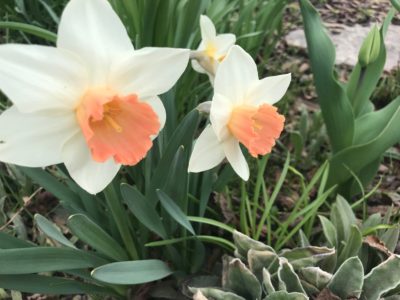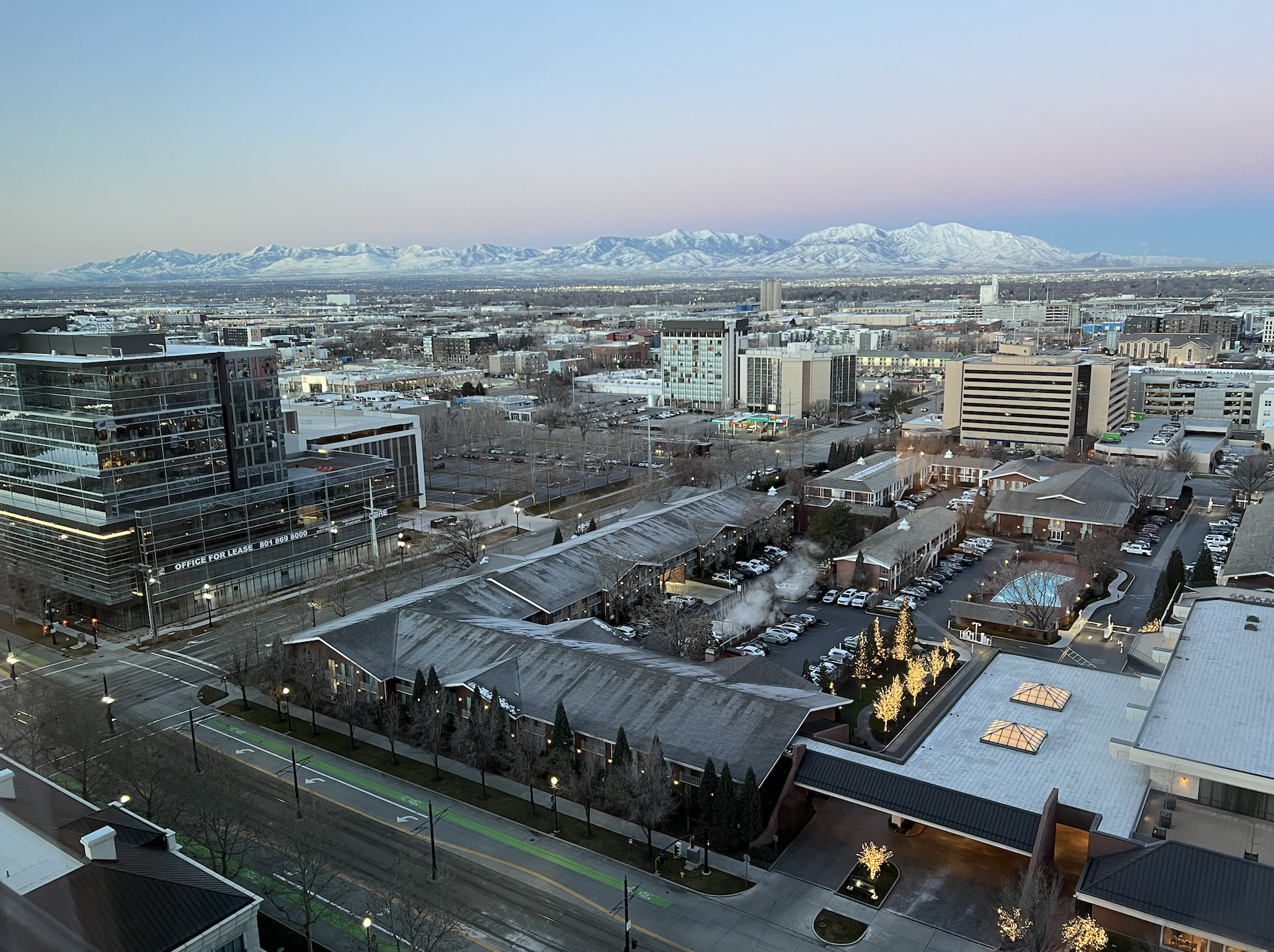
I love these daffodils. Growing in my yard. In Spring. I love them every year, perhaps for the way they awaken a sense of life in me. Little tending required. Much life offered. Oh, I’m so glad for these to balance the day’s virus news.
I found out last week that the platform that holds my current website will be updating (or should I say, out-dating). It means that I’m in a bit of unplanned website redesign to be complete by the end of April. It’s mostly good creative work, at a time when the daffodils in my yard spring to life. It means that I’m also migrating data, links, resources, which I find a bit imposing, though it too requires good creative work.
The story I’ve had on the Home page of my current site has long been an important one. It occurred in the early 2010s. I like the elder featured. I like the questions she asked. I like the way that her questions have shaped a lot of meta for me — some of the deeper purpose and some of the access to that deeper purpose with groups — that has added relevance now in these CoVid Times.
May it inspire, help clarify, or help simplify this profound and powerful work that so many of us are contributing to.
A few years back, an elder friend, Anne Stadler, whom I know from the Open Space community of practitioners, invited me and my then partner for lunch. I remember it as a drizzly, misty Seattle day. Anne’s cottage kitchen table was cozy and inviting. The soup was delicious. The bread warm. The cheese sharp. Anne is one of the most appreciative and clear people I know. She is playful. Wise. That day she asked a question as she was ladling the soup into bowls:
“What navigation systems are you using to
make sense of things these days?”
I loved her question. I loved how she asked it. Playfully, yet purposefully. She was genuinely curious and wanted to learn. We could have chatted the afternoon away about the drizzling rain. Although we did some of that, Anne’s question cut right through to something much more intriguing that applies to many of us these days [whether now sorting CoVid19 or the ongoing need for clarity of who we are together].
I’ve long been the kind of person that is irrepressibly drawn to the meaning of things. I can’t seem to not look for what is beneath the surface. For the invisible, the unseen. Yes, I like the mystery of it. But more so, I can’t help but feel that we humans have often — with great assumptions about speed, control, predictability, and efficiency — squeezed an essential vibrancy from our lives and institutions by not being very aware of our navigation systems.
Professionally, over the last 25 years I’ve been translating navigation systems into improving the ways that human beings work and live together.
What are the most simple and real ways
that we human beings can be together
to accomplish what we care about?
At work? In community? In teams? In networks? Ways that are productive? That don’t fear unknowns and unpredictables, personally or collectively? The simple and real ways that help us get more curious, expansive, and imaginative? That help us turn to each other rather than away. That challenge us to evolve who we are and how we are together?
I am the kind of human that asks these kinds of questions. I can’t not.
Most people agree that we live in complex times. I acknowledge this. It is honest to me. Major systems (education, government, healthcare, social services, energy, environment, finance) are in strain. Some in collapse. Many feel precarious in their ability to continue as is.
It is my experience that most people care about the work they do. Or want to care. Want to do good work together. Be creative. Innovative. Helpful.
My job, my life, is about bringing people together in ways to make all of this better. I’m a facilitator, workshop leader, speaker, and writer. I work globally. I design and lead meetings in participative formats. To help people be smart together. To get people interacting with each other — learning together, building relationships, and focused on projects. To get deeper to the heart of what matters. The navigation systems I find helpful come from living systems theory, self-organizating systems theory, and emergence.
Better meetings are only part of the story.
Good. They are important and needed. However, I’ve learned that most human beings yearn for a deeper shift. That yearning becomes more apparent when we have the courage to ask ourselves what we are really doing together. I’ve been asking this kind of question for years. What are we really hoping for with each other? The best that I can name as patterns of response that I see is that people are hoping for wholeness, wellness, consciousness, and resonance.
Please feel free to reach me about the ideas you find here that are important to you. For a lunch with soup, bread, and sharp cheese. Or a conversation to begin to make sense of things together.

I love these questions! I love the idea of living into the mystery of these questions even moreso than the idea of finding the answers to them. Thank you, Tenneson. Be well.
I love this question , what navigating system. I’m looking for synonyms for navigating system, is it the ‘story of all things’ we are guided by? Getting to the heart of what matters, yes. I would love lunch with soup and warm bread and sharp cheese! :).
I’m glad for the shared love of the questions. And Jerilyn, yes to soup, bread, cheese when those times come again.
So glad for this orientation and practice with you Toni.